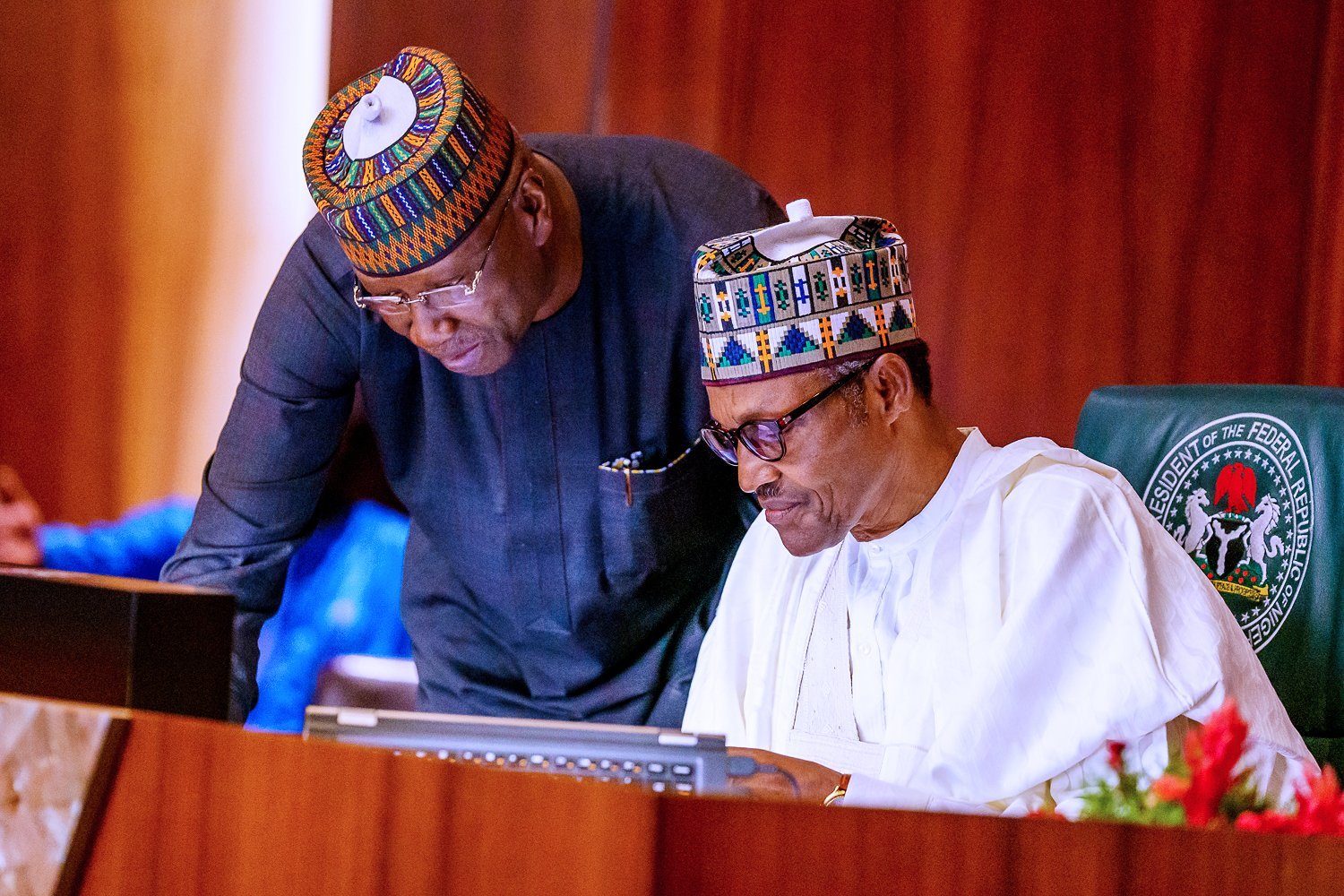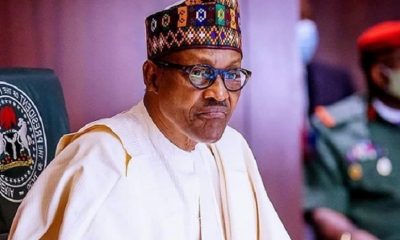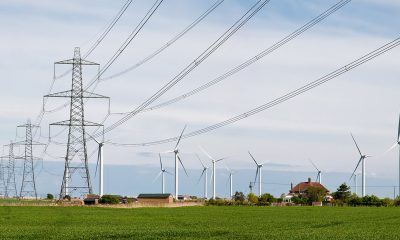Economy
Buhari May Present 2017 Budget December 1
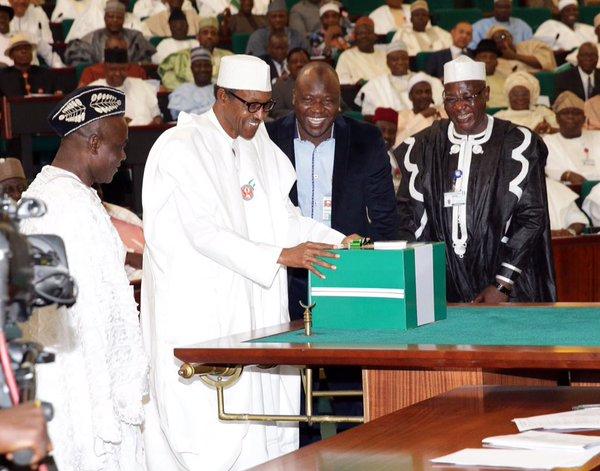
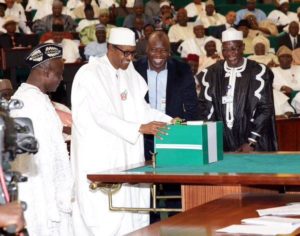
By Modupe Gbadeyanka
There are strong indications that President Muhammadu Buhari may present the 2017 Appropriation Bill to the joint session of the National Assembly on December 1, 2016.
This hint was dropped by the Senate Minority Leader, Mr Godswill Akpabio, on Wednesday while contributing to the debate on the 2017 to 2019 Medium Term Expenditure Framework (MTEF) and Fiscal Strategy Paper (FSP).
According to the immediate past Governor of Akwa-Ibom State, the Senate President, Mr Abubakar Bukola Saraki, on Tuesday made reference to the fact that the President Buhari may be coming to the National Assembly to submit and read the 2017 budget on 1st of December 2016.
This issue came up while the Senators were deliberating on the MTEF and FSP, which they described as unrealistic.
“We can see that we don’t have a perfect document in our hands but of course we are looking at assumptions and assumptions may not necessarily be correct. I want to suggest that we send it to the committee. Of course, the committee will invite the relevant agencies and ministries of government.
“They will come up with a more realistic MTEF/FSP because I believe also that looking at the date that this was submitted to the Senate, (4th of October) and we are debating it today on the 23nd of November.
“So, a lot of indices must have changed. Wednesday, you made reference to the fact that the President may be coming to the chambers to submit and read the 2017 budget on 1st of December.
“If that is the case and we send this (MTEF) back and wait for it to come and debate it, it means that we will not be able to meet that deadline. But if we send it to the committee level, they may come up with something within the next three days that will be much realistic,” Senator Akpabio said.
The lawmaker further said, “My appeal will be that the committee members should take into cognisance all the submissions and observations made today; so that we can come up with a more realistic MTEF and FSP.
“The Medium Term Expenditure Framework and the Fiscal Strategy Paper is proposing a budget that will be predicated on an oil revenue benchmark of $42.5 per barrel for the period 2017 -2019.
“The non-oil revenue for 2017 -2019 is guided by the improved efficiency of collection and expected growth in non-oil GDP, and accordingly customs collection, Companies Income Tax, Value Added Tax and FGN Independent Revenue are non-oil sectors the government is expecting revenue from in 2017.”
According to the proposal, the government is projecting a 3.02% GDP growth in 2017, while inflation is expected to moderate at 12 ‚92%.
The GDP growth would be driven by strong performance in agriculture, wholesale and retail, construction and real estate sectors among others.
Similarly, the GDP growth for the medium term is based on the assumptions of average oil production of 2.2mbpd‚2.3 mbpd and 2.4mbpd for 2017,2018 and 2019 respectively with average benchmark oil price of USD42.5pb,USD45pb‚ and USD50pb for 2017,2018 and 2019 respectively as well as an average exchange rate of N290 per dollar. It is also based on an average growth rate of 9.69% during the period.
Deputy Senate Leader, Mr Bala Ibn Na’Allah, who presented the MTEF, noted that the document is designed to reposition the Nigerian economy from the shores of recession to a sustainable inclusive growth path.
“The fiscal strategy for the 2017 -2019 MTEF / FSP therefore is framed to fundamentally restructure the economy for enhanced productivity, efficiency and accountability in the management of national resources with the intent of unlocking the real sector and private sector potentials for bolstering growth.
“The focus of the 2017-2019 MTEF and FSP is the utilization of targeted spending in critical sectors that will translate into quick transformative capabilities and strong linkages with medium term development plans to achieve a more developed infrastructure base to stimulate real sector productivity, job creation and increased private sector investment.
“The 2017 budget will be guided by six principles namely realism, credibility, allocative strategic, prioritization, transparency and accountability and social safety nets.
“The policy outline in the Medium Term Expenditure Framework and the Fiscal Strategy Paper are in line with the Change Agenda of this Administration,” Mr Na’Allah said.
Economy
Tinubu Okays Extension of Ban on Raw Shea Nut Export by One Year

By Aduragbemi Omiyale
The ban on the export of raw shea nuts from Nigeria has been extended by one year by President Bola Tinubu.
A statement from the Special Adviser to the President on Information and Strategy, Mr Bayo Onanuga, on Wednesday disclosed that the ban is now till February 25, 2027.
It was emphasised that this decision underscores the administration’s commitment to advancing industrial development, strengthening domestic value addition, and supporting the objectives of the Renewed Hope Agenda.
The ban aims to deepen processing capacity within Nigeria, enhance livelihoods in shea-producing communities, and promote the growth of Nigerian exports anchored on value-added products, the statement noted.
To further these objectives, President Tinubu has authorised the two Ministers of the Federal Ministry of Industry, Trade and Investment, and the Presidential Food Security Coordination Unit (PFSCU), to coordinate the implementation of a unified, evidence-based national framework that aligns industrialisation, trade, and investment priorities across the shea nut value chain.
He also approved the adoption of an export framework established by the Nigerian Commodity Exchange (NCX) and the withdrawal of all waivers allowing the direct export of raw shea nuts.
The President directed that any excess supply of raw shea nuts should be exported exclusively through the NCX framework, in accordance with the approved guidelines.
Additionally, he directed the Federal Ministry of Finance to provide access to a dedicated NESS Support Window to enable the Federal Ministry of Industry, Trade and Investment to pilot a Livelihood Finance Mechanism to strengthen production and processing capacity.
Shea nuts, the oil-rich fruits from the shea tree common in the Savanna belt of Nigeria, are the raw material for shea butter, renowned for its moisturising, anti-inflammatory, and antioxidant properties. The extracted butter is a principal ingredient in cosmetics for skin and hair, as well as in edible cooking oil. The Federal Government encourages processing shea nuts into butter locally, as butter fetches between 10 and 20 times the price of the raw nuts.
The federal government said it remains committed to policies that promote inclusive growth, local manufacturing and position Nigeria as a competitive participant in global agricultural value chains.
Economy
NASD Bourse Rebounds as Unlisted Security Index Rises 1.27%

By Adedapo Adesanya
The NASD Over-the-Counter (OTC) Securities Exchange expanded for the first session this week by 1.27 per cent on Wednesday, February 25.
This lifted the NASD Unlisted Security Index (NSI) above 4,000 points, with a 50.45-point addition to close at 4,025.25 points compared with the previous day’s 3,974.80 points, as the market capitalisation added N30.19 billion to close at N2.408 trillion versus Tuesday’s N2.378 trillion.
At the trading session, FrieslandCampina Wamco Nigeria Plc grew by N5.00 to trade at N100.00 per share compared with the previous day’s N95.00 per share, Central Securities Clearing System (CSCS) Plc improved by N4.18 to sell at N70.00 per unit versus N65.82 per unit, and First Trust Mortgage Bank Plc increased by 14 Kobo to trade at N1.59 per share compared with the previous day’s N1.45 per share.
However, the share price of Geo-Fluids Plc depreciated by 27 Kobo at midweek to close at N3.27 per unit, in contrast to the N3.30 per unit it was transacted a day earlier.
At the midweek session, the volume of securities went down by 25.3 per cent to 8.7 million units from 11.6 million units, the value of securities decreased by 92.5 per cent to N80.7 million from N1.2 billion, and the number of deals slipped by 33.3 per cent to 32 deals from the preceding session’s 48 deals.
At the close of business, CSCS Plc remained the most traded stock by value on a year-to-date basis with 34.1 million units exchanged for N2.0 billion, trailed by Okitipupa Plc with 6.3 million units traded for N1.1 billion, and Geo-Fluids Plc with 122.0 million units valued at N478.0 million.
Resourcery Plc ended the trading session as the most traded stock by volume on a year-to-date basis with 1.05 billion units valued at N408.7 million, followed by Geo-Fluids Plc with 122.0 million units sold for N478.0 million, and CSCS Plc with 34.1 million units worth N2.0 billion.
Economy
Investors Lose N73bn as Bears Tighten Grip on Stock Exchange

By Dipo Olowookere
The bears consolidated their dominance on the Nigerian Exchange (NGX) Limited on Wednesday, inflicting an additional 0.09 per cent cut on the market.
At midweek, the market capitalisation of the domestic stock exchange went down by N73 billion to N124.754 trillion from the preceding day’s N124.827 trillion, and the All-Share Index (ASI) slipped by 114.32 points to 194,370.20 points from 194,484.52 points.
A look at the sectoral performance showed that only the consumer goods index closed in green, gaining 1.19 per cent due to buying pressure.
However, sustained profit-taking weakened the insurance space by 3.79 per cent, the banking index slumped by 2.07 per cent, the energy counter went down by 0.24 per cent, and the industrial goods sector shrank by 0.22 per cent.
Business Post reports that 25 equities ended on the gainers’ chart, and 54 equities finished on the losers’ table, representing a negative market breadth index and weak investor sentiment.
RT Briscoe lost 10.00 per cent to sell for N10.35, ABC Transport crashed by 10.00 per cent to N6.75, SAHCO depreciated by 9.98 per cent to N139.35, Haldane McCall gave up 9.93 per cent to trade at N3.99, and Vitafoam Nigeria decreased by 9.93 per cent to N112.50.
Conversely, Jaiz Bank gained 9.95 per cent to settle at N14.03, Okomu Oil appreciated by 9.93 per cent to N1,765.00, Trans-nationwide Express chalked up 9.77 per cent to close at N2.36, Fortis Global Insurance moved up by 9.72 per cent to 79 Kobo, and Champion Breweries rose by 5.39 per cent to N17.60.
Yesterday, 1.4 billion shares worth N46.2 billion were transacted in 70,222 deals compared with the 1.1 billion shares valued at N53.4 billion traded in 72,218 deals a day earlier, implying a rise in the trading volume by 27.27 per cent, and a decline in the trading value and number of deals by 13.48 per cent and 2.76 per cent, respectively.
Fortis Global Insurance ended the session as the busiest stock after trading 193.7 million units for N152.7 million, Zenith Bank transacted 120.7 million units worth N11.1 billion, Japaul exchanged 114.8 million units valued at N407.0 million, Ellah Lakes sold 98.4 million units worth N999.2 million, and Access Holdings traded 63.1 million units valued at N1.7 billion.
-

 Feature/OPED6 years ago
Feature/OPED6 years agoDavos was Different this year
-
Travel/Tourism10 years ago
Lagos Seals Western Lodge Hotel In Ikorodu
-

 Showbiz3 years ago
Showbiz3 years agoEstranged Lover Releases Videos of Empress Njamah Bathing
-

 Banking8 years ago
Banking8 years agoSort Codes of GTBank Branches in Nigeria
-

 Economy3 years ago
Economy3 years agoSubsidy Removal: CNG at N130 Per Litre Cheaper Than Petrol—IPMAN
-

 Banking3 years ago
Banking3 years agoSort Codes of UBA Branches in Nigeria
-

 Banking3 years ago
Banking3 years agoFirst Bank Announces Planned Downtime
-

 Sports3 years ago
Sports3 years agoHighest Paid Nigerian Footballer – How Much Do Nigerian Footballers Earn


